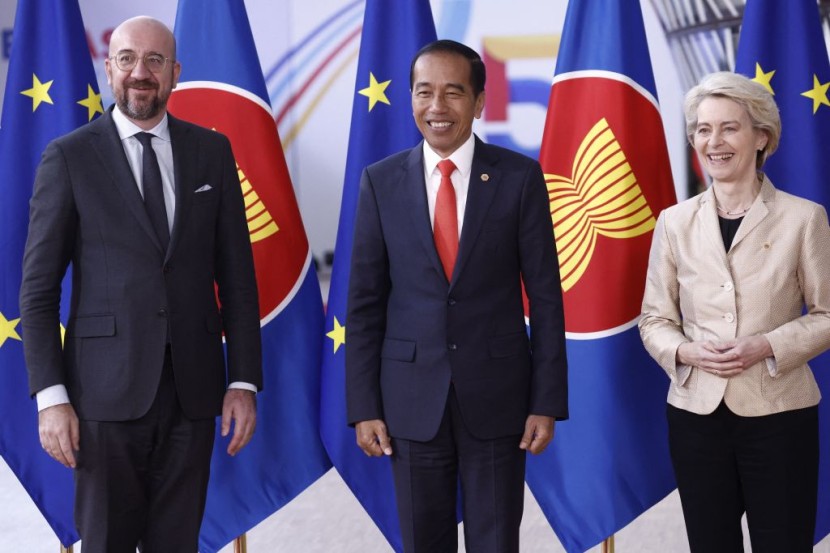
EU nations are reaching out to South East Asia to boost ties and be part of this expanding world sector.
The EU Wants To Boost Ties
The European Union pledged billions of dollars of invested capital in Southeast Asia last Wednesday, as leaders wanted to strengthen relations at a meeting in the face of the Ukraine war and obstacles from China, reported Straits Times.
The EU endorsed the first-ever full forum with Asean in Brussels to expand trading relationships with the rapid expansion of the region's economies. Nevertheless, differences of opinion over Russia's dispute in Ukraine and concerns about Chinese strained relations over a vital shipping route for global trade held sway over the gathering.
The bloc has embarked on a diplomatic push to energize a worldwide front against Moscow because its intrusion has sent political and economic shocks around the globe, noted Zawya.
ASEAN's ten nations, nine of whom were represented after Myanmar's junta, were not welcomed. It had been divided in its reaction to the Russian government's war in Ukraine. Singapore had also moved along with Western sanctions against Russia, whereas Vietnam and Laos, which have close military cooperation with Moscow, had already stayed more impartial, citing SHS Trends.
Boosting Ties with Asean
During an October United Nations vote lambasting Russia's intended territorial expansion of Ukrainian territories that had been captured since February, they decided to join Thailand in abstention.
The varying opinions ended up causing heated debate over the summit's closing comment, with Brussels thrusting for bigger words to repudiate Moscow. Not all were critical of Moscow, so a compromise on the final statement was reached. Another global power stood out at the meeting as Europe pressed for a tougher reply to Moscow.
Chinese assertions over the South China Sea have established it against a few neighbors and prompted European concerns over world trade through a key global passageway. And yet China remains the largest trade partner for Asean, but many in the geographical area are cautious of disassociating themself from their giant peer.
The bloc is inclined to pitch itself as a trustworthy ally for Southeast Asia's vibrant sectors of the economy amid increasing competition between Beijing and Washington.
Asean and the EU are the other's third-largest export markets. Europe views Asia as a substantial source of raw materials but strives to achieve better entry into its rapidly growing markets.
European states are pressing to broaden crucial supply chains from China as the military conflict in Ukraine has also highlighted Europe's deficiencies.
Von der Leyen promised an investment bundle over the next five years costing €10 billion (S$14 billion) under the EU's Global Gateway strategic approach as a counterforce to China's generosity.
Josep Borrell, the head of the bloc's policy, asserted that the geopolitical arena is currently witnessing a combat of offers rather than a battle of narrative. More resources should be available.
Over a decade ago, Asia and the bloc postponed their push for a combined trade deal, but still, the bloc's high-ranking officials mentioned they intended to reboot efforts for a broad agreement. The EU must contact South East Asia to boost ties or lose out.
© 2026 HNGN, All rights reserved. Do not reproduce without permission.








